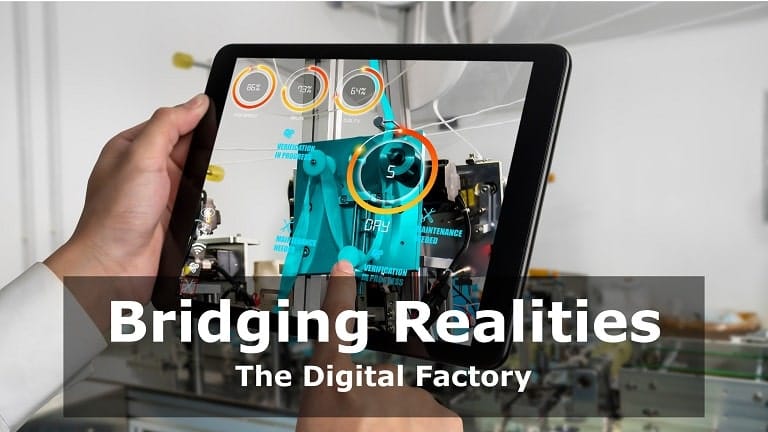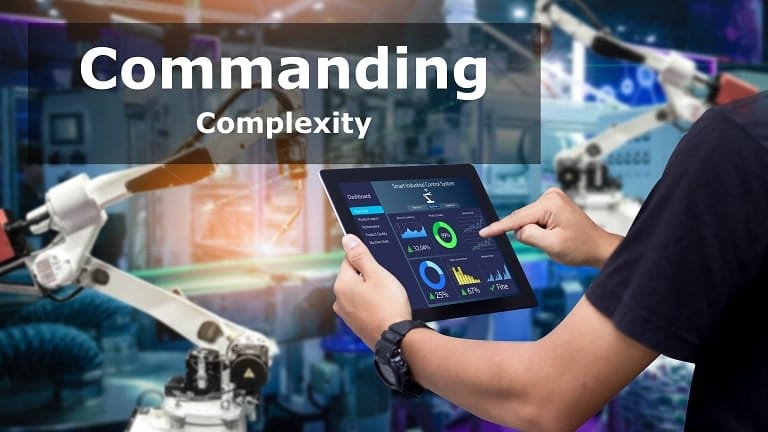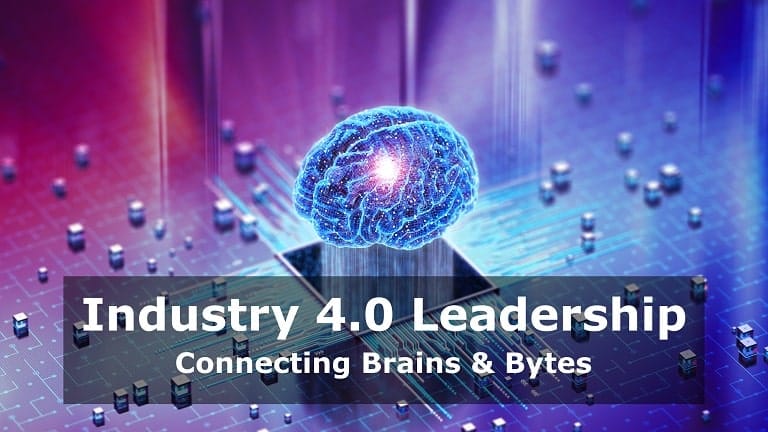The manufacturing world is undergoing a seismic shift driven by Industry 4.0—an era defined by the fusion of technologies like the Internet of Things (IoT), Artificial Intelligence (AI), and Big Data. These innovations are transforming traditional factories into smart, interconnected ecosystems that operate with unprecedented efficiency and intelligence. But as technology evolves, so too must leadership. The qualities that made leaders successful in the past are no longer enough. In fact, some studies indicate that a significant percentage of companies—perhaps as high as 80%—identify a leadership skills gap as a major barrier to adopting Industry 4.0 technologies effectively.
Today’s leaders need a fresh set of skills that combine digital fluency, data literacy, and the ability to manage rapid change. In this article, we’ll explore the essential leadership qualities that organizations must prioritize when recruiting for the Industry 4.0 era—qualities that will help businesses not just survive, but thrive in tomorrow’s competitive landscape.
What is Industry 4.0?

Industry 4.0, also known as the Fourth Industrial Revolution, marks a transformative phase in the way industries operate, driven by the integration of advanced digital technologies into manufacturing and business processes. Unlike previous industrial revolutions that focused on mechanization, mass production, or automation, Industry 4.0 is characterized by smart, interconnected systems that communicate and make decisions with minimal human intervention.
At the heart of Industry 4.0 are a suite of breakthrough technologies that include the Internet of Things (IoT), Artificial Intelligence (AI), machine learning, Big Data analytics, cloud computing, robotics, and cyber-physical systems. These technologies collectively enable what we now call smart factories—environments where machines, devices, and humans are all linked via a digital network to improve efficiency, responsiveness, and customization.
For instance, IoT allows devices and machinery to transmit real-time performance data, which can then be analyzed using AI and machine learning to detect patterns, predict failures, and suggest optimizations. Big Data empowers organizations to sift through massive volumes of information to drive evidence-based decision-making. Meanwhile, cloud computing ensures these insights are accessible anytime, anywhere, while advanced robotics automate complex tasks with precision and consistency.
The impact of Industry 4.0 technologies goes far beyond the shop floor. They are reshaping business models, streamlining supply chains, and enabling mass customization at scale. Companies that embrace these tools can respond faster to market demands, reduce operational costs, and unlock new value propositions.
However, this evolution also demands a shift in how leadership is approached. Leaders must now understand not only the technical landscape but also how to leverage these technologies strategically. Digital manufacturing success depends on agile decision-making, real-time insights, and a proactive mindset toward change.
Understanding Industry 4.0 is essential to identifying the leadership qualities required in this new era—where data drives strategy, and innovation is the default setting.
Why Traditional Leadership No Longer Works

The rapid advancements brought on by Industry 4.0 have exposed the limitations of traditional leadership models rooted in hierarchy, control, and rigid decision-making. These conventional approaches were effective in stable, predictable environments but struggle to keep pace with the dynamic, technology-driven landscape that defines modern manufacturing and business.
A key challenge many organizations face today is what McKinsey calls “pilot purgatory”—a state where digital initiatives stall or fail to scale because leadership lacks the agility and decisiveness needed to move projects forward. Without leaders who can respond quickly and empower teams to act autonomously, companies risk wasting resources on pilots that never deliver real impact.
Traditional command-and-control leadership also slows innovation by creating bottlenecks. Waiting for approvals through layers of hierarchy frustrates employees and inhibits the rapid experimentation and iteration critical for success in Industry 4.0. Instead, effective leaders must cultivate a culture of collaboration and trust, where cross-functional teams have the freedom to make data-driven decisions and adapt in real time.
Additionally, emotional intelligence and adaptability have become vital traits. Leaders must manage not only technological change but also the human side of transformation—helping employees navigate uncertainty, build new skills, and embrace continuous learning.
The cost of clinging to outdated leadership styles is significant. PwC estimates that organizations adopting Industry 4.0 technologies can realize up to 20% in annual digital revenue growth and reduce operational costs by 30%. Conversely, companies slow to evolve face lost productivity, missed innovation opportunities, and the risk of being outpaced by more agile competitors.
In this new industrial era, leadership is less about command and more about influence, empathy, and strategic agility. To succeed, organizations must rethink leadership—investing in the qualities and mindsets that empower teams to thrive amid complexity and rapid change.
The Essential Industry 4.0 Leadership Qualities

In the Industry 4.0 era, leadership requires a unique blend of technical know-how, strategic vision, and interpersonal skills. Leaders must not only understand emerging technologies but also how to integrate them effectively while guiding their people through complex transformations. Here are the key qualities that distinguish Industry 4.0-ready leaders:
1. Data Literacy
Data has become the foundation of decision-making in smart manufacturing and digital enterprises. Leaders must be comfortable with large datasets, analytics tools, and AI-driven insights.
Critical skills include:
Understanding data sources, quality, and biases
Interpreting analytics dashboards and predictive models
Translating data into actionable strategies
Encouraging a culture of data-driven decision-making across teams
Impact example: A plant manager using AI-powered predictive maintenance reduced downtime by 15%, directly cutting costs and increasing throughput. This kind of outcome highlights why Gartner predicts that by 2024, 70% of manufacturers will need strong data analytics and machine learning skills to stay competitive.
Leaders should promote continuous data literacy training and empower employees to harness data at all organizational levels.
2. Digital Transformation Skills
Driving digital transformation requires more than technical understanding; it demands strategic foresight and the ability to manage change.
Key competencies include:
Evaluating and adopting technologies like IoT, AI, robotics, and cloud platforms
Aligning digital initiatives with broader business goals
Facilitating collaboration across departments to break down silos
Mitigating disruption during technology rollouts through clear communication and support
Since the pandemic, 85% of companies have accelerated their digital transformations, underscoring the urgency for leaders to stay ahead of technological trends and lead with agility.
Example: A manufacturing division leader successfully led the company-wide implementation of a cloud-based production monitoring system. By coordinating cross-functional teams, managing stakeholder expectations, and providing hands-on training, they reduced production bottlenecks by 20% within the first six months, demonstrating how effective leadership can drive tangible transformation outcomes.
Effective digital leaders champion innovation while balancing risks and costs, ensuring investments deliver measurable ROI.
3. Change Management Expertise
Industry 4.0 environments are inherently dynamic, with rapid shifts in technology, processes, and roles.
Leadership in change management involves:
Building trust through transparency and empathetic communication
Preparing teams for transitions by offering training and support
Encouraging experimentation and treating failures as learning opportunities
Maintaining morale and engagement during uncertainty
Agile change management practices allow organizations to adapt quickly, reduce resistance, and embed continuous improvement.
4. Cybersecurity Awareness
Increased connectivity means elevated cyber risks, making cybersecurity a top leadership priority.
Leaders should:
Understand the potential impact of cyber threats on operations and reputation
Promote cybersecurity best practices throughout the organization
Collaborate closely with IT and security teams to implement robust safeguards
Foster employee awareness through regular training on phishing, password hygiene, and data protection
Proactive cybersecurity leadership minimizes vulnerabilities, protects sensitive information, and builds stakeholder confidence.
Together, these Industry 4.0 leadership qualities empower organizations to innovate confidently, operate efficiently, and sustain competitive advantage in an increasingly complex digital landscape.
How to Identify and Recruit Future-Ready Leaders
Recruiting leaders capable of thriving in the Industry 4.0 era is one of the most pressing challenges organizations face today. According to recent data from Matsh.co, 75% of employers report difficulty finding skilled workers with the necessary digital competencies. This shortage is especially acute in manufacturing, where Deloitte projects a staggering 2.1 million unfilled jobs by 2030 in the United States alone (ERP Today). The gap in leadership skills is even more critical, as future-ready leaders must not only understand technology but also drive cultural and strategic transformation.
To effectively identify these leaders, organizations need to rethink traditional hiring processes. One powerful approach is to incorporate scenario-based interview questions that assess candidates’ ability to adapt and solve complex problems. For example, asking how they would lead a team through a sudden digital disruption or manage the integration of AI-driven analytics reveals both their technical understanding and agility.
Beyond technical skills, a growth mindset is crucial. Candidates who actively seek new knowledge, embrace continuous learning, and encourage their teams to upskill demonstrate the resilience and curiosity vital for navigating Industry 4.0’s rapid evolution. Look for evidence of this mindset through their past experiences, certifications, or participation in digital transformation initiatives.
While recruiting fresh talent is essential, organizations should also invest in upskilling their existing leadership. Targeted training programs focused on data literacy, cybersecurity awareness, and digital transformation can bridge skills gaps and empower seasoned leaders to drive innovation confidently.
Building a pipeline of future-ready leaders requires a dual approach: attracting external candidates with strong digital fluency and cultivating internal talent through continuous development. Organizations that succeed in this will be better positioned to leverage Industry 4.0 technologies, foster agile cultures, and maintain competitive advantage in a complex, fast-changing environment. If your organization is ready to secure the visionary leaders who can drive your Industry 4.0 success, JRG Partners specializes in identifying and recruiting manufacturing executive talent with these precise, future-ready qualities.
Conclusion: Leading the Future with Confidence
The leadership landscape is undergoing a profound transformation driven by the rapid advancements of Industry 4.0. Traditional leadership approaches, once effective in stable and predictable environments, are no longer sufficient to meet the demands of a highly connected, data-rich, and fast-evolving world. Today’s leaders must embrace new competencies that align with the digital age—qualities that emphasize adaptability, innovation, and a strong digital fluency.
Success in the Industry 4.0 era hinges on leaders who are comfortable navigating complexity and uncertainty. They must be agile thinkers who can rapidly interpret data insights, anticipate technological shifts, and pivot strategies accordingly. These leaders don’t just manage change; they actively drive transformation by fostering a culture that embraces experimentation, continuous learning, and collaboration across diverse teams.
Innovation becomes a leadership imperative in this new era. Industry 4.0 technologies such as IoT, AI, and Big Data unlock immense potential, but only when leaders understand how to leverage them strategically. This requires a mindset that is open to exploring new ideas, investing in digital tools, and encouraging teams to challenge the status quo. Leaders who cultivate this environment set the foundation for sustainable growth and competitive advantage.
Moreover, cybersecurity awareness and digital responsibility are essential pillars of modern leadership. As organizations become increasingly interconnected, leaders must champion robust security practices and safeguard their enterprises against evolving cyber threats. This proactive stance protects not only data and systems but also the trust and reputation that businesses rely on.
Looking ahead, the future belongs to those leaders who combine technical savvy with emotional intelligence, strategic vision with operational agility, and innovation with resilience. By cultivating these Industry 4.0 leadership qualities, organizations can confidently face the challenges and opportunities of the Fourth Industrial Revolution and drive lasting success. To partner with a team dedicated to securing these transformative leaders for your manufacturing operations, explore JRG Partners’ executive recruitment services.


